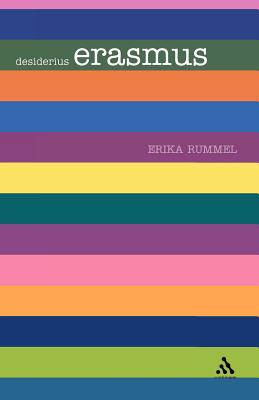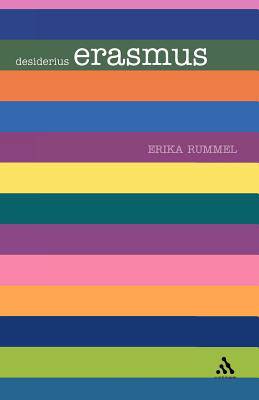
- Afhalen na 1 uur in een winkel met voorraad
- Gratis thuislevering in België vanaf € 30
- Ruim aanbod met 7 miljoen producten
- Afhalen na 1 uur in een winkel met voorraad
- Gratis thuislevering in België vanaf € 30
- Ruim aanbod met 7 miljoen producten
Zoeken
Omschrijving
Desiderius Erasmus was one of the most influential writers of his time and widely acclaimed as the principal Northern humanist. He was, however, not only a man of letters but also a shrewd observer of society, a sharp critic of the institutional church, and a scholar on the cutting edge of biblical studies. Although not a systematic philosopher or theologian, he left his stamp on the intellectual milieu of his time and was regarded by Catholic apologists as the inspirational source of the Lutheran reformation. In this book, Erika Rummel introduces readers to Erasmus' ideas on education, piety, social order, and the epistemology underpinning his thought. The educational programme proposed by Erasmus aims at creating a Christian humanist, speaking with Ciceronian eloquence and breathing the spirit of the gospel. The perfect piety envisaged by Erasmus involves a progression from the observance of rites to inner devotion and a love of Christ that guides every action. The ideal social order, according to Erasmus, is hierarchical. He depicts the three estates arranged in concentric circles around Christ, with the clergy closest to him, followed by the nobility and the common people. The Christian prince reflects the qualities of God, whose steward he is. A father-figure to his people, the ruler dispenses justice and provides spiritual leadership. Erasmus' magnum opus, his pioneering edition of the Greek New
Specificaties
Betrokkenen
- Auteur(s):
- Uitgeverij:
Inhoud
- Aantal bladzijden:
- 160
- Taal:
- Engels
- Reeks:
Eigenschappen
- Productcode (EAN):
- 9780826491558
- Verschijningsdatum:
- 1/08/2006
- Uitvoering:
- Paperback
- Formaat:
- Trade paperback (VS)
- Afmetingen:
- 140 mm x 211 mm
- Gewicht:
- 204 g

Alleen bij Standaard Boekhandel
+ 92 punten op je klantenkaart van Standaard Boekhandel
Beoordelingen
We publiceren alleen reviews die voldoen aan de voorwaarden voor reviews. Bekijk onze voorwaarden voor reviews.











